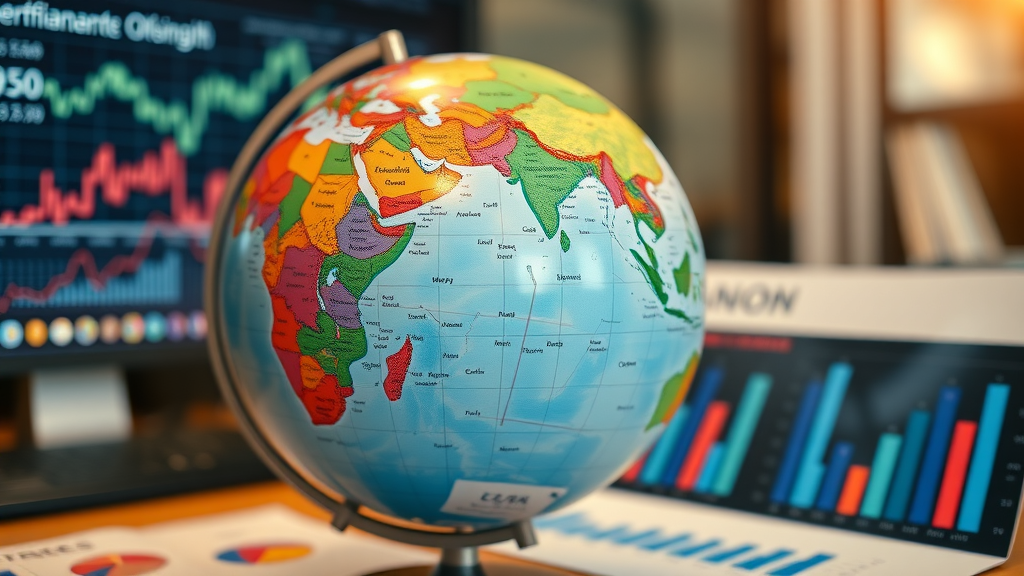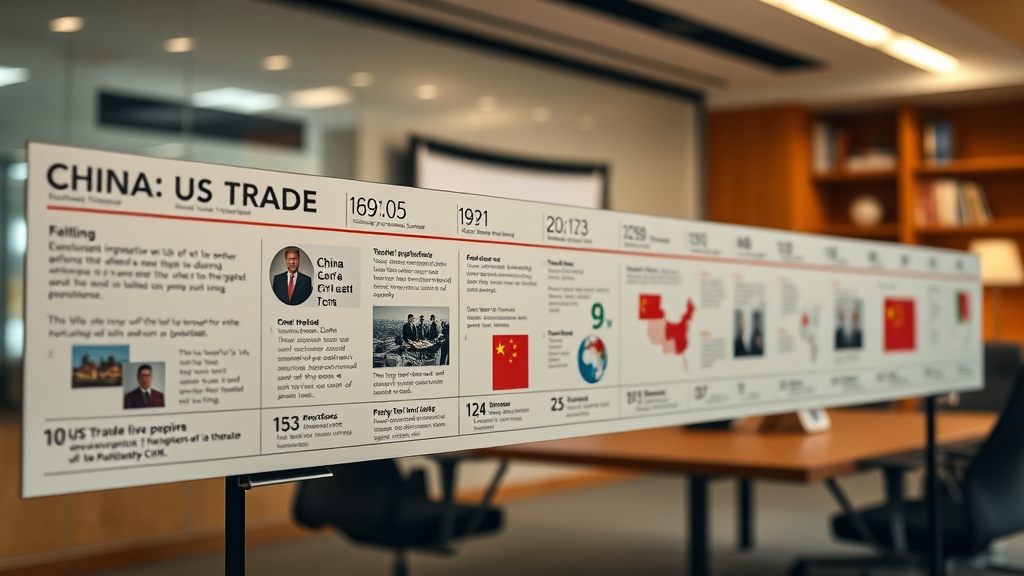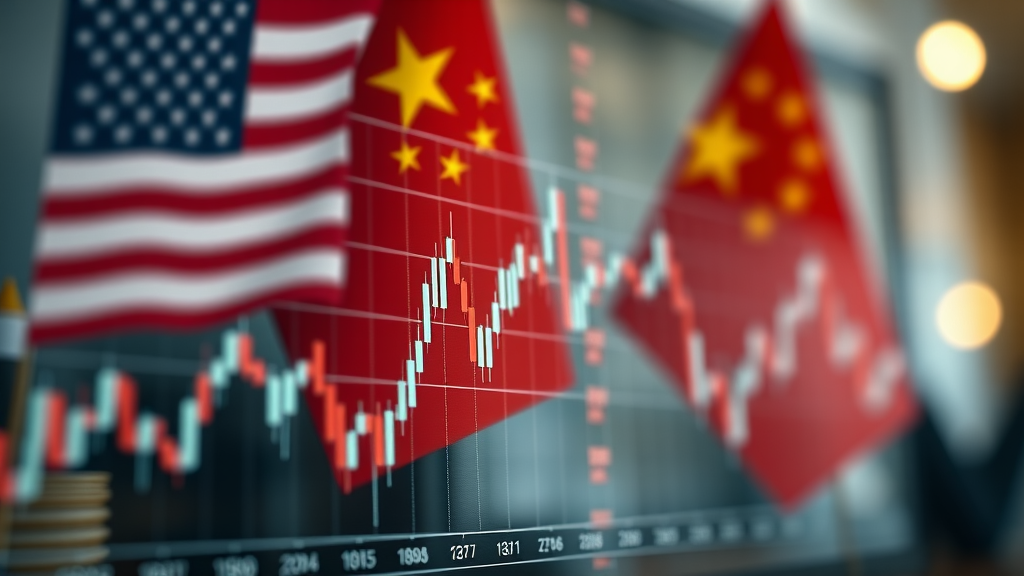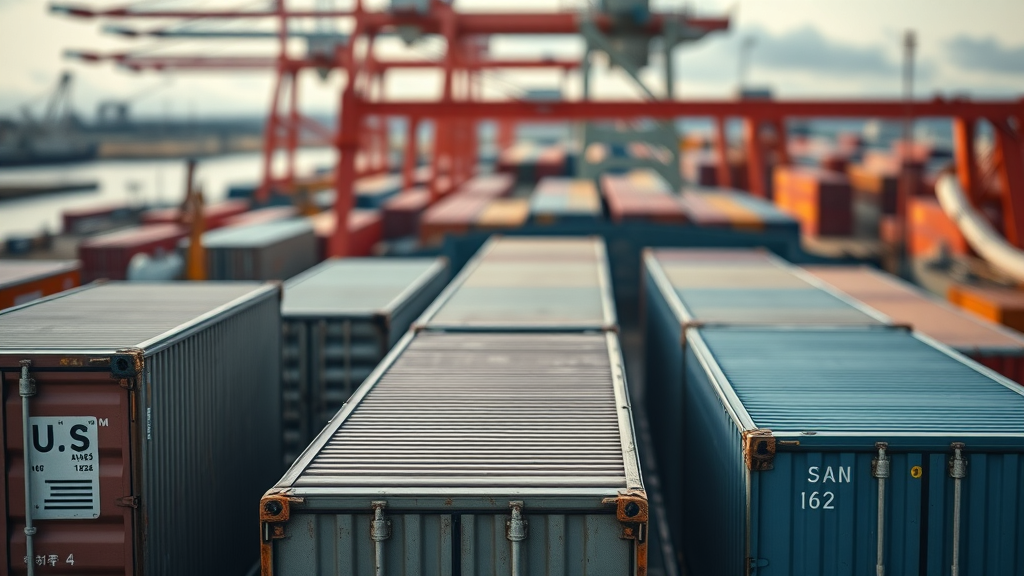Have you ever wondered how nations wage 'wars' without a single weapon fired? Enter the intriguing realm of trade wars, where tariffs and policies battle it instead of armies. Let's dive into the mechanisms and implications.
What You'll Learn: Understanding the Trade War Landscape
An overview of trade wars and their significance in the global economy
Impact of trade wars on international relations and domestic markets
Insights into the current conflict between China and the US
Expert opinions on the future of trade conflicts and resolutions

Exploring the Concept of a Trade War
Defining a Trade War: A Comprehensive Analysis
A trade war is an economic conflict resulting from extreme protectionism where countries impose tariffs or quotas on imports and retaliate against each other. It disrupts international trade, potentially leading to a decrease in the volume of trade and increased costs for consumers.
Trade wars have far-reaching effects, impacting global markets by increasing the costs of goods, thereby affecting consumer behavior and international relations. For instance, recent US-China tariffs have led to increased prices on products such as solar panels and washing machines, prompting businesses to adapt to new economic realities. For a deeper understanding of how global trade tariffs impact the economy, you can explore The Impact of Global Trade Tariffs on the Economy .

Economic Implications of Trade Wars
The economic implications of trade wars are profound. They can lead to increased consumer prices due to higher tariffs on goods, affecting the cost of living. When the US and China imposed mutual tariffs, the auto and agricultural sectors suffered significant setbacks. Additionally, the uncertainty caused by trade wars can hinder business investment and disrupt global supply chains.
The conflict often trickles down to everyday consumers, who bear the brunt of increased prices and limited product availability, showcasing how trade policies affect even the smallest economic actors. For insights into how trade policies are shaped, consider reading about the 2025 Special 301 Report .
The Conflict Between China and the US: A Case Study
Roots of the US-China Trade Dispute
The origins of the US-China trade conflict can be traced back to longstanding trade imbalances and intellectual property theft allegations. As tensions mounted, both nations implemented tariffs affecting billions in goods. Key events, such as the tariffs initiated by President Trump and retaliatory measures from China, highlight the complexities of modern trade disputes. For more on the implications of such policies, see Trump’s Congress Address: What It Means for Import Export Companies .

Tariffs, Tactics, and Trade Negotiations: What Have We Learned?
The trade war has taught us about the intricacies of international trade negotiations, where every tariff imposed results in tactical shifts. For instance, when the US levied tariffs on Chinese solar panels, it spurred innovation and efficiency in domestic production. Conversely, Chinese tariffs on American agricultural products demonstrated the market's volatility, pressuring the global food supply chain.
Impact on Global Markets from the US-China Conflict
The US-China conflict significantly impacts global markets by altering investment flows, stock market dynamics, and trade norms. Fluctuations in market confidence and the re-routing of supply lines exemplify how these disputes echo worldwide, influencing global economic growth narratives.

How Might Trade Hurt a Country in a Time of War?
Economic Vulnerabilities Exposed by Trade Conflicts
Trade wars expose economic vulnerabilities, such as over-reliance on imports or specific trade partners. They can reveal weaknesses in domestic industries, leading to strategic missteps. For example, relying heavily on foreign technology can cripple a nation if cut off during trade conflicts.

Strategic Missteps: Examples from History
Throughout history, trade conflicts have led to strategic blunders. For instance, the 1930s Smoot-Hawley Tariff Act exacerbated the Great Depression by straining US-European economic relations, illustrating the potential pitfalls of protectionist policies.
Decoding Trade in Simple Words
Fundamentals of Trade: What It Implies for Global Economy
Trade involves the exchange of goods and services across borders, underpinning global economic health. It drives innovation, economic growth, and competitive pricing, essential for consumer choice and global market stability.
Importance of Trade Agreements and Alliances
Trade agreements foster international cooperation, reduce tariffs, and enhance market access, fostering economic resilience. Alliances like NAFTA demonstrate how collaborative trade policies can benefit countries by streamlining regulations and promoting regional economic stability.

How Do Wars Affect Trade?
Historical Context and Modern Implications
Historically, wars have disrupted trade routes and altered economic landscapes. Modern conflicts continue this trend, affecting global supply chains and leading to diversified trade strategies.
Adapting to Trade Disruptions
Nations often adapt to trade disruptions by seeking new alliances or developing domestic industries. For instance, the US has shifted focus to alternative suppliers to mitigate dependency on traditional partners affected by ongoing trade tensions.

Expert Insights and Quotes on Trade Wars
“Trade wars do not have winners. They have survivors, with the future hinging on diplomacy and economic resilience.”— John Economist, Global Analyst
FAQs on Trade Wars
What are the primary causes of a trade war?
Can trade wars be beneficial to any party?
How do trade wars influence consumer prices?

Key Takeaways on Trade Wars
The complex dynamics of executing a trade war
Long-term effects on national and global economies
The role of diplomacy in mitigating conflicts
Conclusion: Reflecting on the Trade War Discourse
Summarizing the Impacts and Future Prospects of Trade Wars

The impacts of trade wars underscore the need for diplomatic interventions and strategic realignments. Looking forward, proactive policies and international cooperation remain key to averting prolonged economic discord.
Call to Action: Join the Discussion on Global Trade Policies
Stay informed and involved in the ongoing discussions about global trade policies to help shape a future where economic collaboration thrives over conflict.
 Add Row
Add Row  Add
Add 




Write A Comment